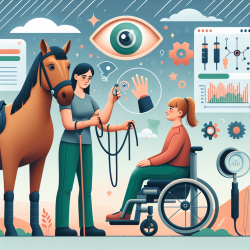The digital age has transformed the landscape of adolescent development, particularly in terms of sexual agency and relationship-building. The Social Networks and Agency Project (SNAP) study provides a comprehensive look at how online and offline social networks influence these aspects of adolescent life. By understanding the findings of this study, practitioners can better support young people in navigating their social environments.
The SNAP Study: An Overview
Conducted over an 18-month period, the SNAP study utilized a mixed methods approach to examine the relationship between adolescents' social networks and their development of sexual agency. Participants aged 15-17 were recruited to provide insights through questionnaires, interviews, and online diaries. This interdisciplinary research aimed to capture both quantitative and qualitative data to offer a robust understanding of adolescent socialization.
Key Findings and Implications for Practitioners
The SNAP study revealed several critical insights into how social networks impact adolescent development:
- Interdisciplinary Approach: The study's use of multiple disciplines highlights the complexity of adolescent development. Practitioners should consider integrating insights from social science, public health, and media studies into their approaches.
- Social Media's Dual Role: Social media can both positively and negatively influence adolescent sexual agency. Practitioners should guide young people in using these platforms responsibly while fostering open discussions about online interactions.
- Importance of Sexual Agency: Developing sexual agency is crucial for healthy relationships. Practitioners can use the novel scale developed by SNAP to assess and promote sexual agency among adolescents.
- Diverse Experiences: The study underscores the diversity in adolescent experiences with social networks. Tailoring interventions to individual needs is essential for effective support.
Applying SNAP Insights in Practice
Practitioners can leverage the findings from the SNAP study to enhance their work with adolescents:
- Encourage Positive Online Interactions: Educate adolescents about safe online behaviors and encourage them to engage in positive interactions that promote mutual respect and understanding.
- Foster Open Communication: Create environments where adolescents feel comfortable discussing their online experiences and any challenges they face.
- Utilize Comprehensive Assessments: Incorporate tools like the sexual agency scale developed by SNAP to better understand adolescents' needs and tailor interventions accordingly.
- Promote Interdisciplinary Collaboration: Work with professionals from various fields to provide holistic support that addresses all aspects of adolescent development.
The Path Forward: Encouraging Further Research
The SNAP study highlights the need for ongoing research into the complex interplay between social networks and adolescent development. Practitioners are encouraged to stay informed about new findings and integrate them into their practice. By doing so, they can continue to provide relevant support that meets the evolving needs of young people.
The journey toward understanding adolescent development in the digital age is ongoing. By embracing research like the SNAP study, practitioners can empower young people to navigate their social worlds with confidence and agency.
To read the original research paper, please follow this link: Prospective mixed methods study of online and offline social networks and the development of sexual agency in adolescence: the Social Networks and Agency Project (SNAP) protocol.










